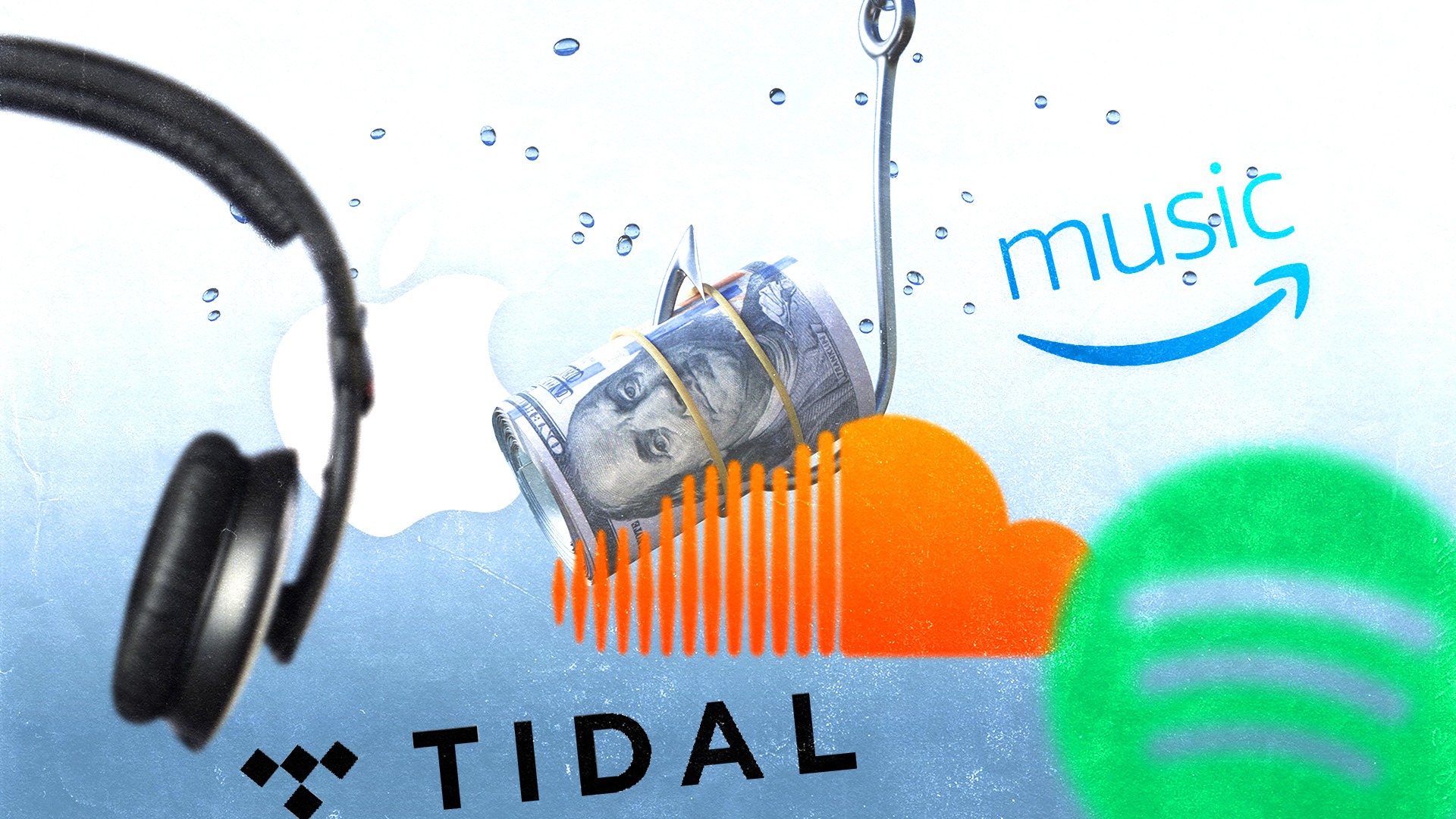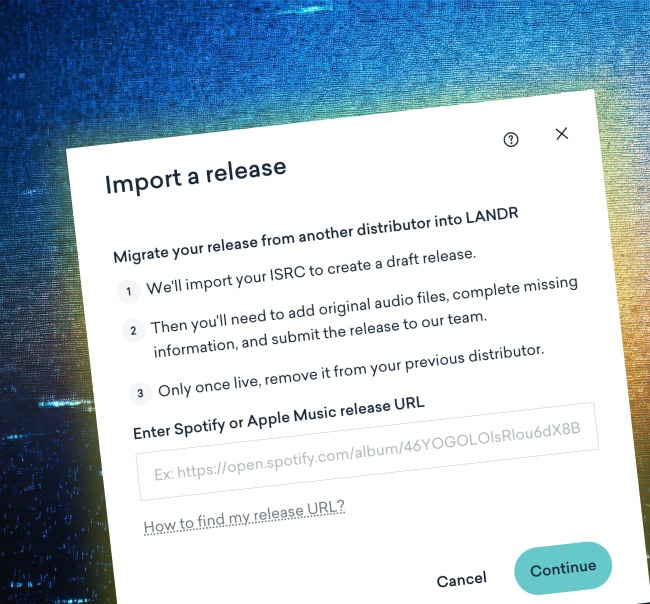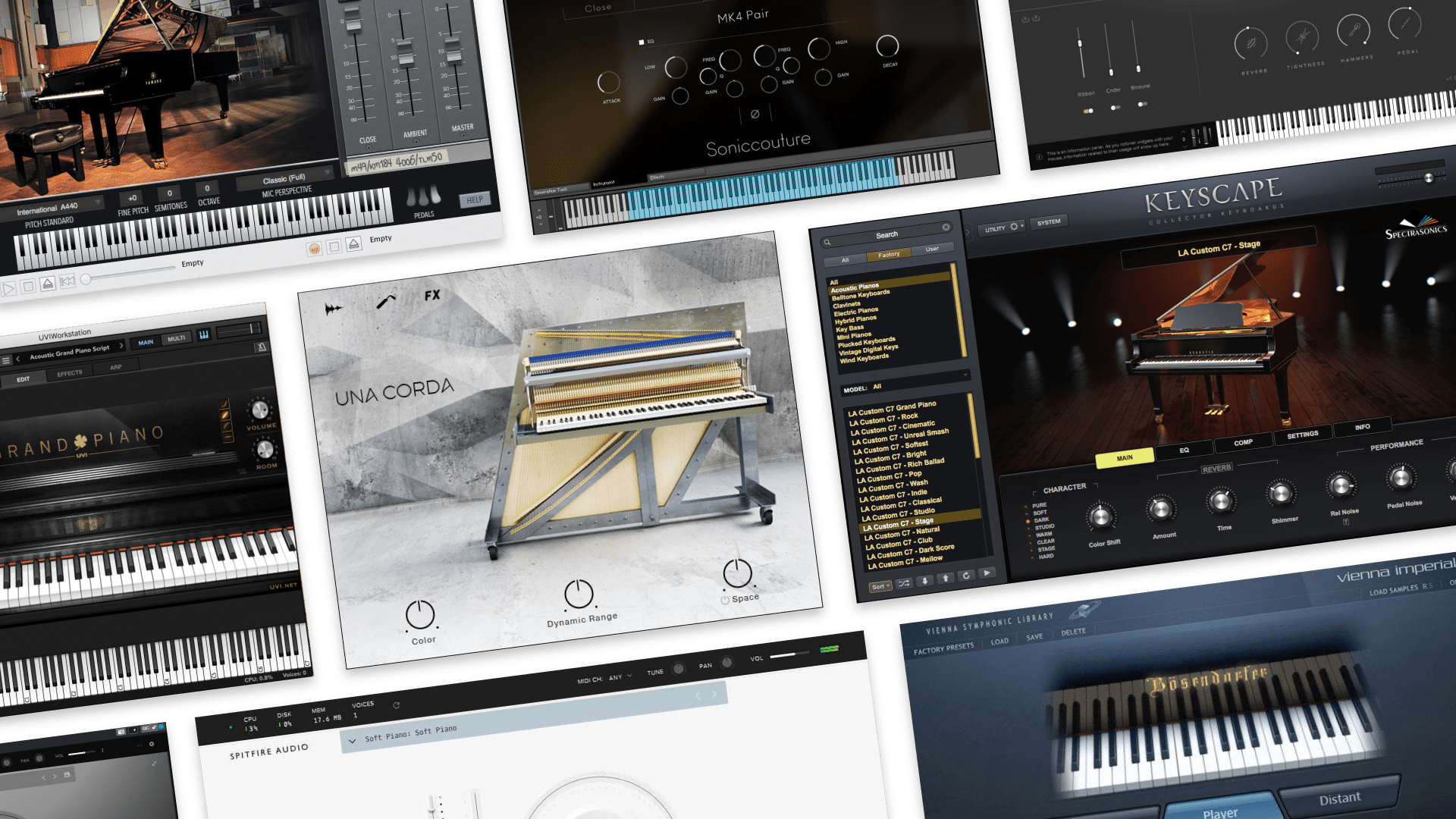
The Best Music Distribution Services in 2026
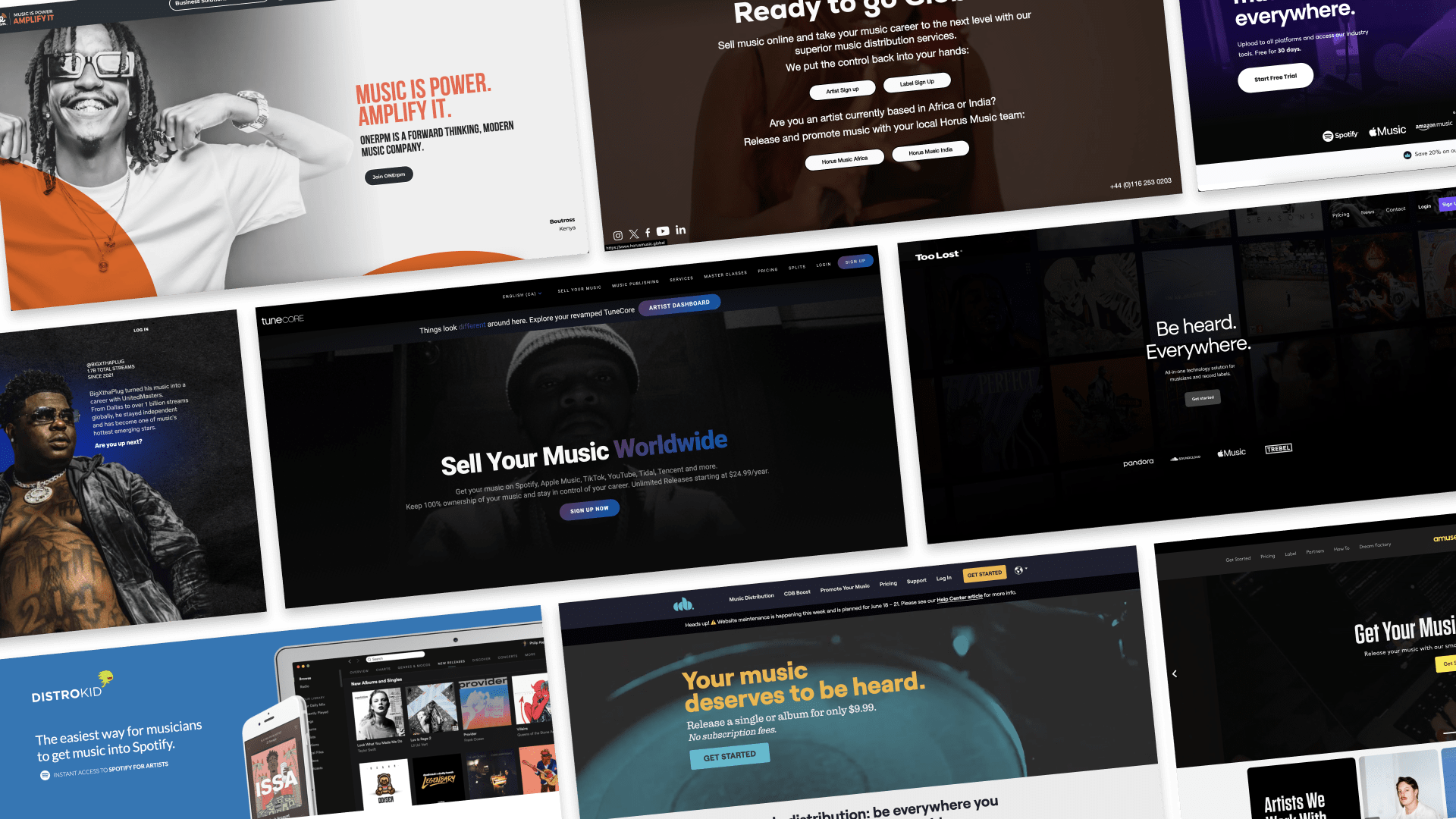
Digital music distribution services are how artists reach listeners in 2026.
These services enable the release of singles and albums on streaming platforms like Spotify and Apple Music, and allow artists to earn money from streams.
However, selecting a music distributor is more complex than you may think. These services represent your music catalog online and manage payouts on your behalf, offering various packages at different price points with unique features.
So, which should you choose? In this article, we review the 11 most prominent music distribution services, comparing their features, pricing, and additional benefits.
By the end of this guide, you’ll have a clear understanding of how distributors structure their services and which pricing tier best suits your needs as an artist.
Music distribution companies compared
How do we select and review each distribution service?
We chose each distribution service on this list because they offer reliable services and have a long history of helping thousands, if not millions, of clients sell their music.
Every distributor on our list offers self-service distribution, where artists can upload their music and send it to Spotify, Apple Music and others.
We did not include any invite-only services, though some of the listed companies do offer invite-only publishing, sync, and marketing management services.
The goal for this article is to make it abundantly clear what core features you get (or don’t get) with each distribution service’s lowest price tier, and what features exist at higher tiers.
Ultimately, we want to help readers make the best decision based on facts about what each distributor in the marketplace offers at its lowest priced plan levels and how they differentiate at higher prices.
We tried our best to find all the information we could about each distributor, and that’s why we’ll be keeping this list up to date as each company evolves.
Four types of music distribution service
There is a clear distinction between the tiers of service and pricing offered by each company.
Currently, most distribution services offer their services in four distinct tiers. Let’s explore what you can expect at each pricing level.
1. Free-tier services
Out of the 11 services we examined, two offer a free version of their service.
At this tier, you can expect a release-limited service that’ll send your music to only a handful of streaming platforms (in some cases only social media).
Don’t expect much in terms of access to additional reporting, YouTube Content ID or bonus content either.
Aside from the limited number of stores your music release, the biggest downside of this pricing tier is its high commission fee, which can range from 15% to 50%, levied by the distribution service provider.
2. Pay-per-release services
Two of the services we reviewed offer a pay-per-release service that charges per album or single—CD Baby and RouteNote.
In this category, features and pricing varied. CD Baby offers the lowest price but also takes a commission, while RouteNote charges higher prices per release with no commission.
Plans like these are advantageous if you don’t release more than once per year. If you release more often, you’ll likely save money with a subscription, especially if your subscription keeps your music up after cancellation.
3. Low-tier services ($20-$26/year)
Between the 11 music distribution services we looked at for this list, nearly all of them offer a low-tier service priced between $20 and $26 per year.
Each service offers slightly different features, but most of them will send your music to 150+ digital streaming and social media platforms, provide reporting features and take no commission.
Services in this group sometimes included varied combinations of YouTube Content ID, cover song licensing, a mobile app, label-style services and bonus content.
4. Mid to high tier services ($30-$80/year)
Most of the 11 music distribution services we examined offer a more comprehensive product priced between $60 and $80 per year.
At this tier, distribution services start to diverge in terms of what each plan includes.
Some plans promise sync licensing opportunities and basic publishing rights management, while others offer access to valuable bonus content and music production tools.
For example, TuneCore, Ditto and Amuse offer publishing and rights management while promising sync licensing opportunities to their mid-tier subscribers.
Whereas, on top of unlimited distribution, LANDR offers unlimited AI-mastering, 40+ pro-grade plugins, Ableton Live Lite, a royalty-free sample marketplace, educational content and more to its Studio subscribers.
The 11 best music distribution services in 2026
1) LANDR
LANDR Distribution Features
| Lowest plan price | $23.99/year |
| Commission | 0% |
| Releases stay up if you cancel? | Yes |
| Unlimited releases to 150+ platforms? | Yes |
| Release speed | 5 Days |
| Releases on social media? | Yes |
| YouTube Content ID | Included with Distribution pro plan |
| Video distribution | No |
| Reporting tools | Yes |
| Royalty splits | Yes |
| Mobile app | Yes |
| Cover licensing | $15 per song |
| Additional products & content | LANDR’s suite of music production software, samples, tools and resources with Studio subscription |
LANDR launched its music distribution service in 2018, building on its pioneering successes in AI-mastering to create an artist-first music distribution platform. Adding music distribution to its suite of products and services was part of LANDR’s plan to become a comprehensive, one-stop shop for artists, musicians and producers.
LANDR Distribution is competitively positioned with transparent pricing, no hidden fees and features that match, or often exceed, those of other major distribution services.
Notably, LANDR offers YouTube Content ID with its Pro pricing tier at only $44.99/year, a feature not commonly included by most distribution services.
With LANDR, your releases are live forever, even if you cancel your subscription. If you need support, you’ll get timely help from friendly humans, not chatbots. It’s a big reason why LANDR is a preferred partner of Spotify and Apple Music.
But what truly sets LANDR apart is the additional plugins, tools, and content included in its best plan, LANDR Studio.
On top of unlimited distribution access, LANDR Studio subscribers get unlimited industry-leading AI-mastering, 45+ pro-grade plugins, access to LANDR’s massive royalty-free sample marketplace, masterclass learning content, and so much more.
No other music distribution service matches LANDR Studio’s extensive suite of music production tools, sample content, educational resources, and branding tools.
If you’re considering a new music distributor or thinking about switching, take a look at what LANDR has to offer.
2) DistroKid
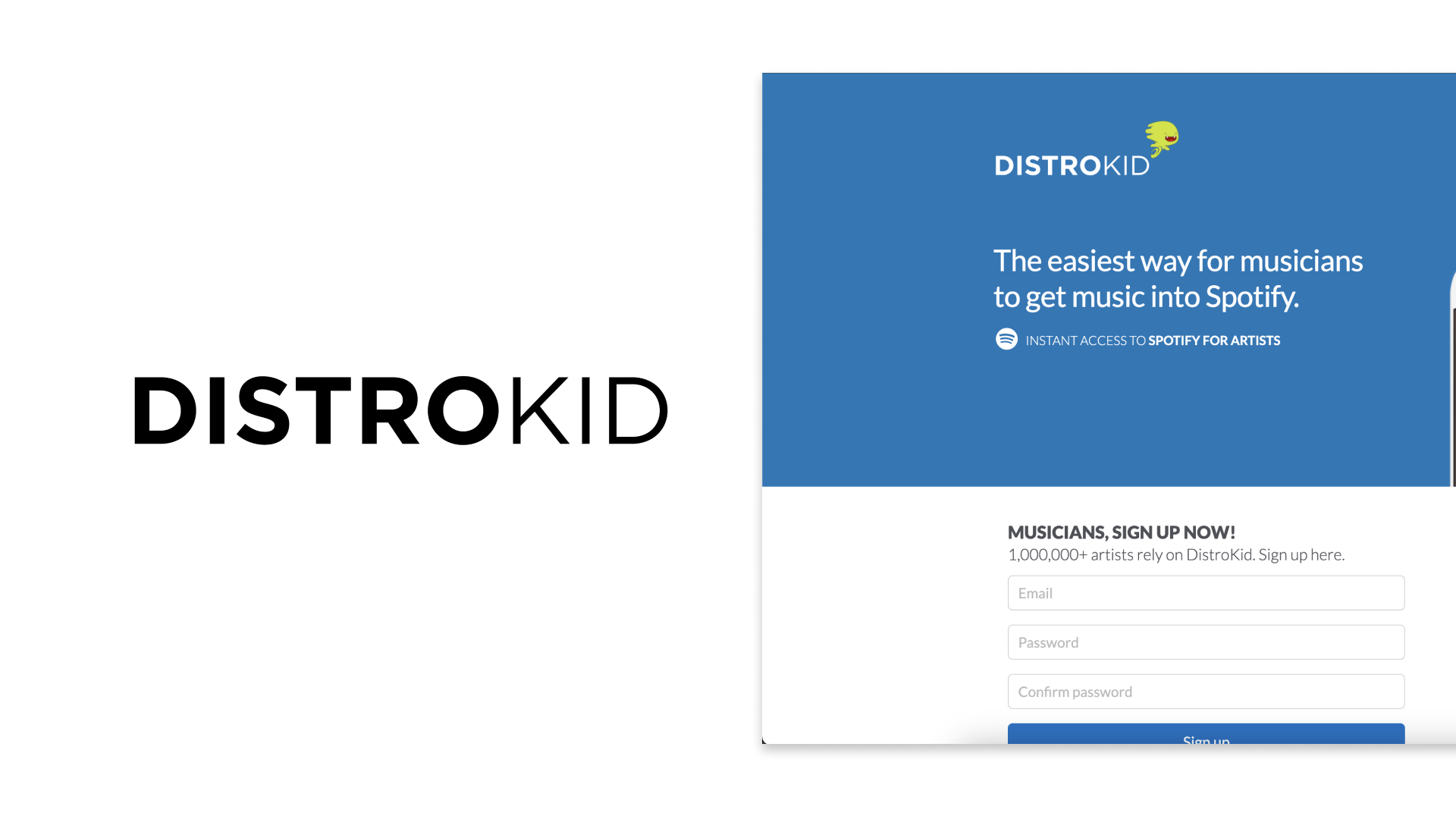
DistroKid Features
| Lowest tier price | $22.99/year |
| Commission | None |
| Releases stay up if you cancel? | No (unless you pay a $29 fee) |
| Unlimited releases to 150+ platforms? | Yes |
| Release speed | 5 Days |
| Releases on social media? | Yes |
| YouTube Content ID | +$4.95/single/year |
| Video distribution | +$99/year for VEVO |
| Reporting tools | Yes |
| Royalty splits | Yes |
| Mobile app | Yes |
| Cover licensing | $12/license/year |
| Additional products & content | Lyric video generator, hyperfollow page |
Pros:
- Slightly lower price than others on this list
- Good branding and content production tools included
Cons:
- You must pay an additional $29 fee per release to keep your releases live after cancellation
- High additional yearly fees for services like YouTube Content ID and video distribution
- Limited additional products or services included
- Chatbot support with minimal human involvement
DistroKid entered the music distribution industry in 2013 with an aggressive influencer marketing campaign and now hosts more artists than any other distribution service provider.
They offer an easy-to-navigate service, even though it has some shortcomings and a handful of hidden fees that some artists feel the company is not upfront about.
With monetization tools like YouTube Content ID being so important to artists right now, it’s surprising to see them charging additional fees to get access to this important feature.
But DistroKid’s lyric video and social media post video generators are clever, useful tools that’ll help artists produce additional content for their social media feeds with next to no effort.
3) TuneCore
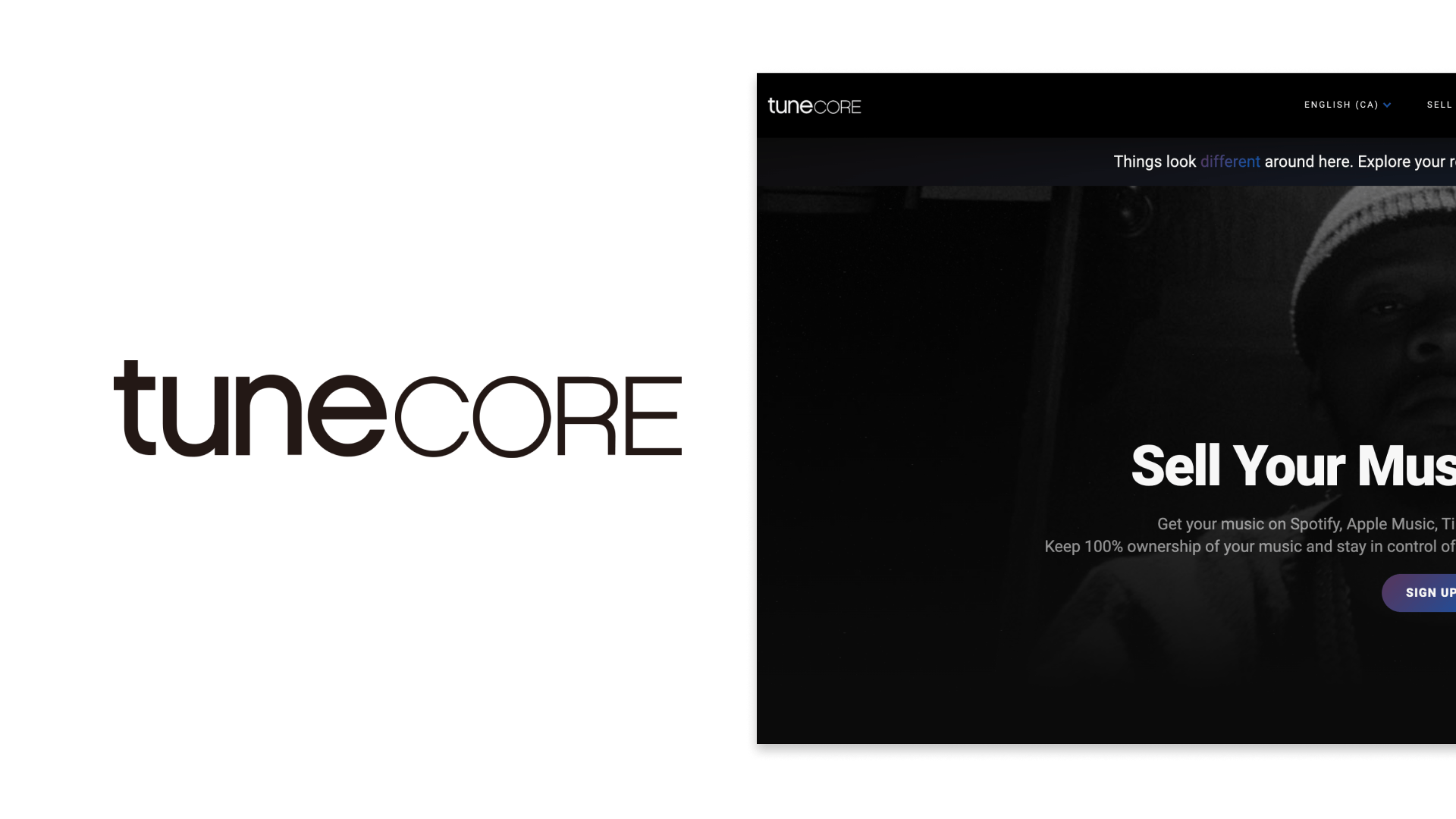
TuneCore Features
| Lowest tier price | $22.99/year (Rising artist) |
| Commission | None |
| Releases stay up if you cancel? | No (Grace period, then removal) |
| Unlimited releases to 150+ platforms? | Yes |
| Release speed | 7 days |
| Releases on social media? | Yes |
| YouTube Content ID | Yes |
| Video distribution | Free |
| Reporting | Yes (not at lowest tier) |
| Royalty splits | Yes |
| Mobile app | None |
| Cover licensing | $17/cover for limited, $70 for standard license |
| Additional products & content | Education content, Publishing, StudioOne+ DAW |
Pros:
- Standard services and prices aligned with the rest of the distribution market
- Inclusion of StudioOne+ DAW is an added bonus
Cons:
- Publishing service and cover song licensing is slightly more expensive
- Daily trend reports are not included with lowest-tier plan
TuneCore was acquired by Believe Music in 2015 and has since become the second largest music distribution service provider after DistroKid.
When we tested their music distribution, we found a well-thought-out workflow that was easy to follow. It also came with all the important features that are standard among distribution service providers.
While TuneCore has a marginally higher yearly subscription fee, the inclusion of YouTube Content ID offsets this cost.
Like other distribution services that differentiate themselves with additional content, tools and product bundles, TuneCore offers some decent Masterclass-style content and a free license to use PreSonus’ subscription-based StudioOne+ DAW.
Arguably these added benefits help distinguish TuneCore from other competition by providing more than just distribution with a subscription.
4) CD Baby
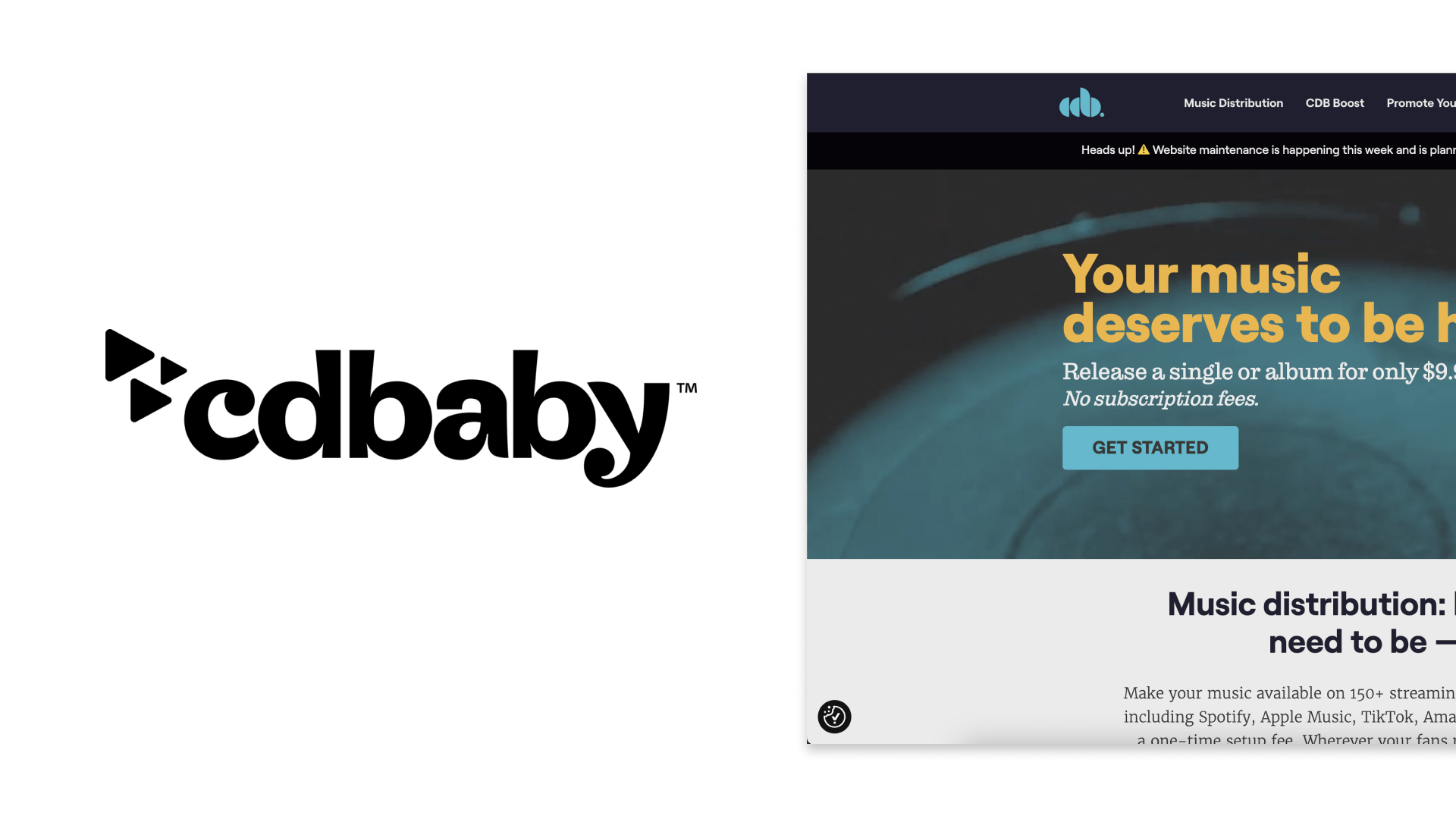
CD Baby Features
| Lowest tier price | $9.99 per single |
| Commission | 9% |
| Releases stay up if you cancel? | Yes (one-time fee) |
| Unlimited releases to 150+ platforms? | Yes |
| Release speed | 5 days |
| Releases on social media? | Yes |
| YouTube Content ID | Yes |
| Video distribution | Yes |
| Reporting | Yes, limited analysis |
| Royalty splits | Yes |
| Mobile app | No |
| Cover licensing | $16.99/cover through EasySong |
| Additional products & content | CD Baby Boost publishing management |
Pros:
- No subscription required
- Publishing and sync licensing management are offered for an additional fee
Cons:
- 9% commission on earnings
- If you release more than twice per year, you’ll pay more than other subscriptions
- Doesn’t include bonus music production software or educational content
CD Baby is one of the first music distribution services that achieved mainstream success. In the mid-2000s, CD Baby was a go-to for getting music on the iTunes store and selling CDs online.
Today, they offer a comprehensive music distribution service that follows a unique, pay-per-release pricing model.
For artists who release music infrequently (once per year or less), CD Baby can be a cost-effective option. However, for those planning to release music more frequently and wishing to retain 100% of their royalties, other services with more tools and features might be a better fit.
5) Ditto
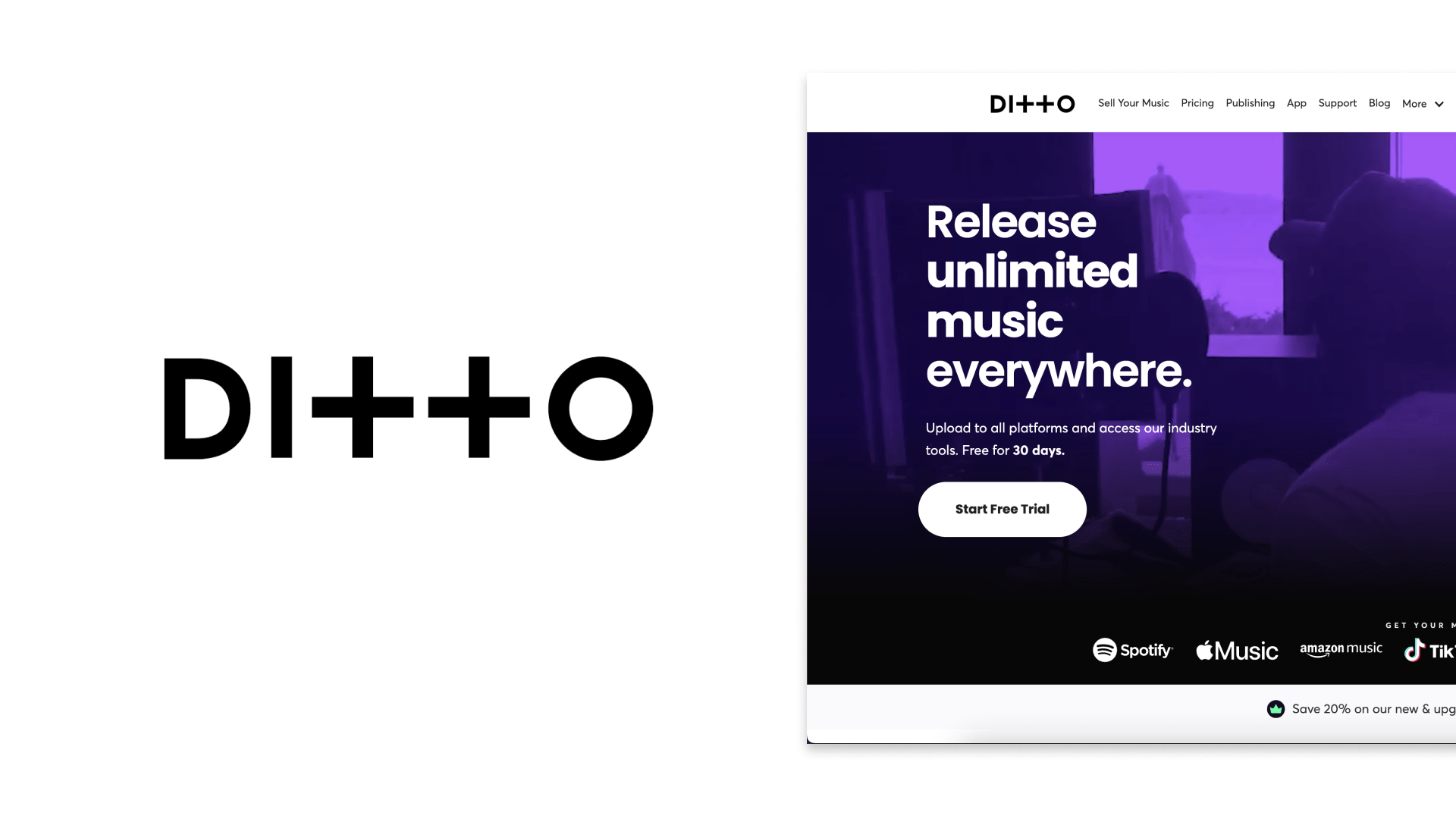
Ditto Features
| Lowest tier price | $29/year (Starter plan) |
| Commission | 0% |
| Releases stay up if you cancel? | No |
| Unlimited releases to 150+ platforms? | Yes |
| Release speed | 10 days if scheduled ahead |
| Releases on social media? | Yes |
| YouTube Content ID | Yes |
| Video distribution | Yes (Partnered with Vevo) |
| Reporting | Yes |
| Royalty splits | Yes |
| Mobile app | Yes |
| Cover licensing | No, you must provide a mechanical license |
| Additional products & content | Music publishing, sync licensing |
Pros:
- Sync and publishing support at the middle pricing tier
Cons:
- The lowest tier is limited in extra features and bonus content
- YouTube Content ID only included with the highest tier
Ditto got its start in music distribution in 2005, ultimately growing into a leading position in the UK and Europe.
Ditto has built a fairly comprehensive distribution product that ticks almost all the boxes compared to the rest of the market.
Its mid-tier offering is a good option if you’re looking for additional support with sync licensing and publishing.
However, if you’re on a budget, you’ll get a somewhat stripped-down service that’s not quite as feature-rich as other music distribution companies.
6) Amuse
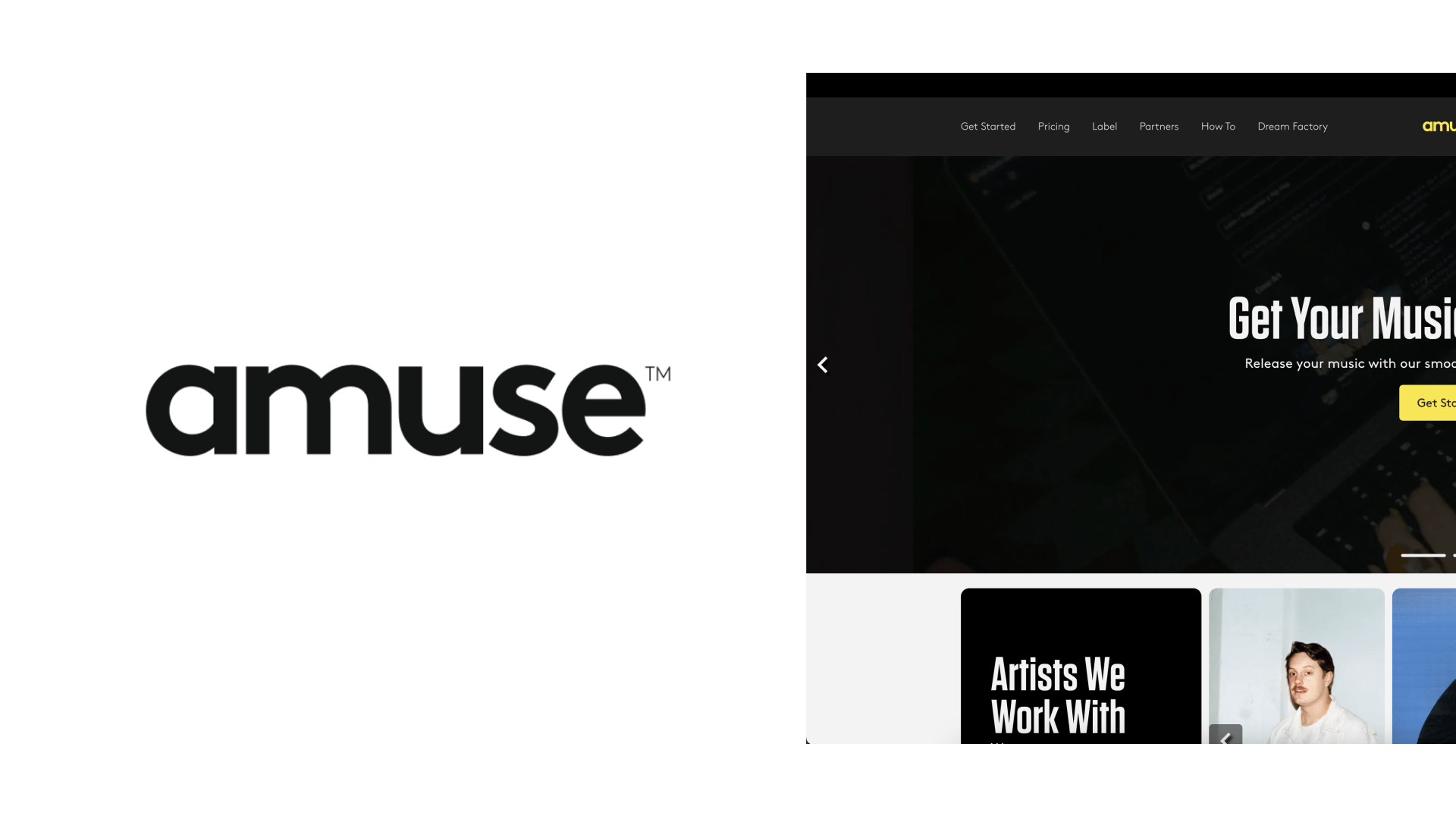
Amuse Features
| Lowest tier price | $19.99/year |
| Commission | None |
| Releases stay up if you cancel? | No |
| Unlimited releases to 150+ platforms? | Yes |
| Release speed | 5-14 days |
| Releases on social media? | Yes |
| YouTube Content ID | Yes (15% commission for lower tier) |
| Video distribution | No |
| Reporting | Yes, some analysis |
| Royalty splits | Yes |
| Mobile app | No |
| Cover licensing | No (free to release with your own license) |
| Additional products & content | AI mastering, Groover playlisting support |
Pros:
- Lower yearly subscription price compared to other distributors
- Some additional features of fairly good quality
Cons:
- Higher-tier product doesn’t offer much more than its lower-tier product
- Limited in additional tools and features
- Release speed is slow compared to others at 5-14 days
Amuse is a relatively new music distribution service that entered the market in 2015.
The Stockholm-based company claims to use its database to “discover” artists and offer them opportunities to secure larger record deals.
However, looking at its flagship artists, none were particularly recognizable or memorable..
If you want to distribute your music with Amuse you’ll get a fairly basic distribution service that doesn’t offer much beyond the basic services other platforms offer.
But if you believe that your music could be discovered by their “data analysis” tools, this might be a good platform for you.
7) United Masters
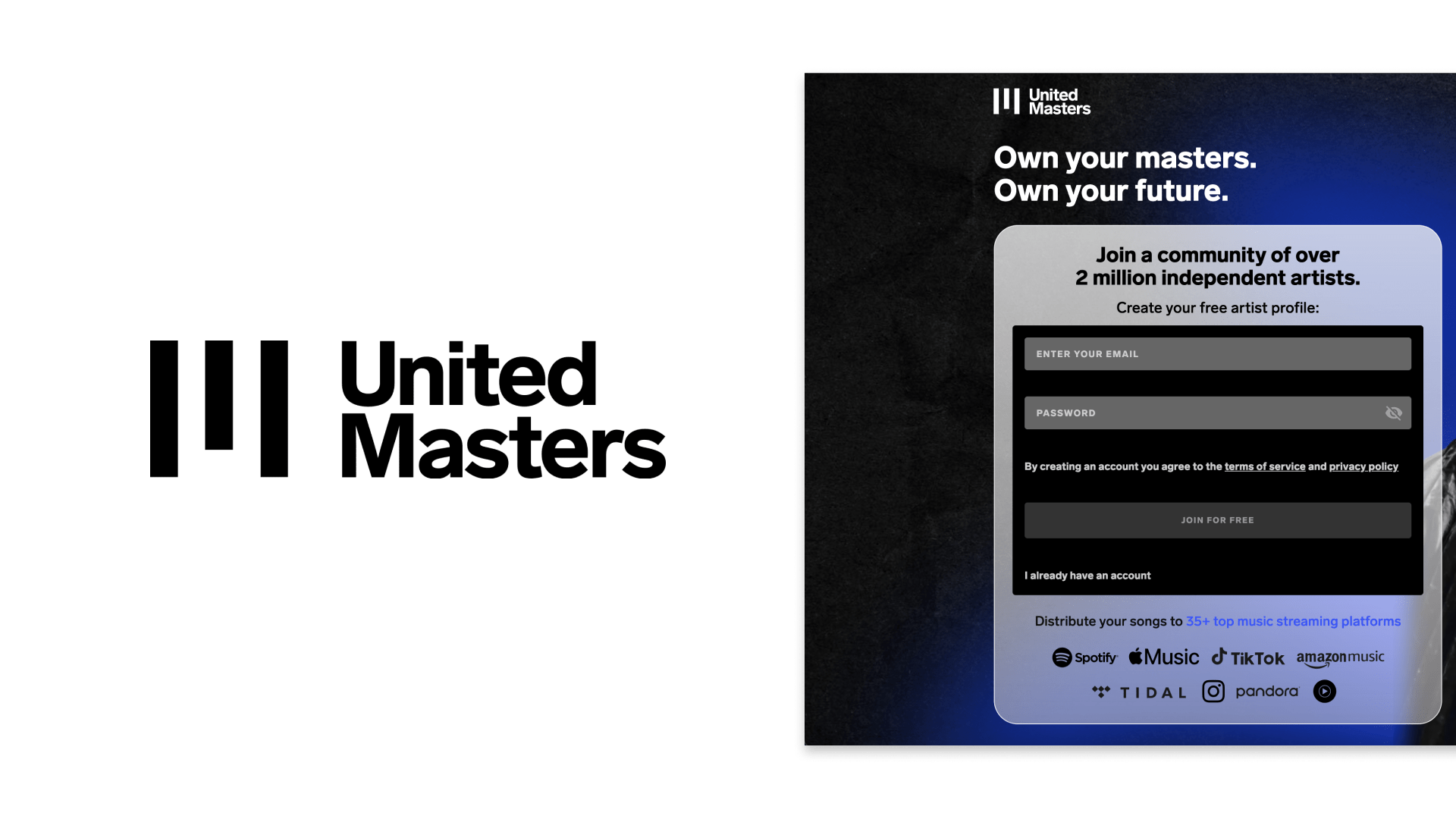
United Masters Features
| Lowest tier price | $19.99/year |
| Commission | None |
| Releases stay up if you cancel? | No |
| Unlimited releases to 150+ platforms? | Only 50+ platforms |
| Release speed | 5 days |
| Releases on social media? | Yes |
| YouTube Content ID | Only with its invite-only tier |
| Video distribution | Only with its invite-only tier |
| Reporting | Yes, some analysis |
| Royalty splits | Yes |
| Mobile app | Yes |
| Cover licensing | Only with its invite-only tier |
| Additional products & content | Invite-only publishing and sync support |
Pros:
- Low entry price
- Mid-tier plan promises to create opportunities for sync placements
- Beat marketplace to upload and sell royalty-free beats
- Operates more like a record label or publishing agency for artists with a larger following
Cons:
- Basic plan is limited in features and takes a commission
- Pushes you towards its mid-tier plan
- High-tier plan is invite only
United Masters is another distribution platform worth checking out, especially if you have a budget for its more advanced features.
At its higher tiers, the platform offers opportunities to submit music for sync placements with big brands. It also boasts a beat marketplace where beat makers can sell tracks to rappers and producers.
However, if you opt for the basic plan, be aware that you will only be able to distribute your music to 50+ platforms.
8) ONErpm/Offstep
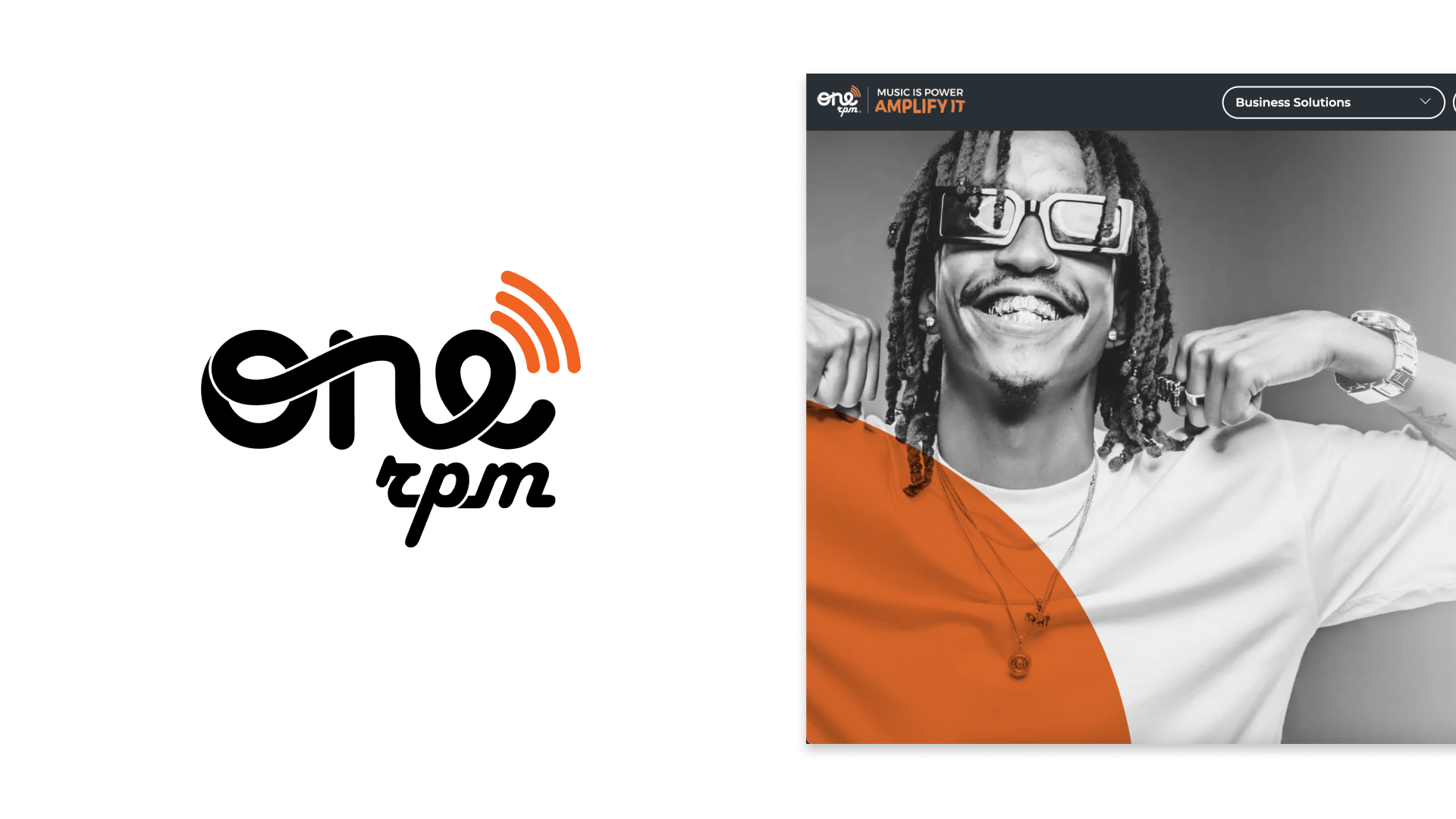
ONErpm Features
| Lowest tier price | $18/year with Offstep (Onerpm is invite only now) |
| Commission | 0% (social platforms at 20%) |
| Releases stay up if you cancel? | No |
| Unlimited releases to 150+ platforms? | No, 45+ platforms |
| Release speed | 3-5 business days |
| Releases on social media? | Yes |
| YouTube Content ID | Yes (With Advanced plans) |
| Video distribution | No |
| Reporting | Yes, basic reporting |
| Royalty splits | No, only on higher plans. |
| Mobile app | No |
| Cover licensing | No, you must obtain your own license. |
| Additional products & content | Lyrics distribution only on $96/year plan |
Pros:
- Low cost
Cons:
- Very barebones service
- Distribution to only 45 platforms
- Limited in many areas
ONErpm is no longer a free distribution provider and is now invite-only. Visitors to the site are forwarded to the Offstep website, where only paid plans are offered. Offstep is still a very new provider in the space and has grown in popularity in some Latin American markets. Their offering is very basic compared to some of the more established music distribution services on this list.
That said, if you’re on a tight budget and are comfortable with limited features and a limited distribution network, Offstep could be worth considering.
9) Horus Music
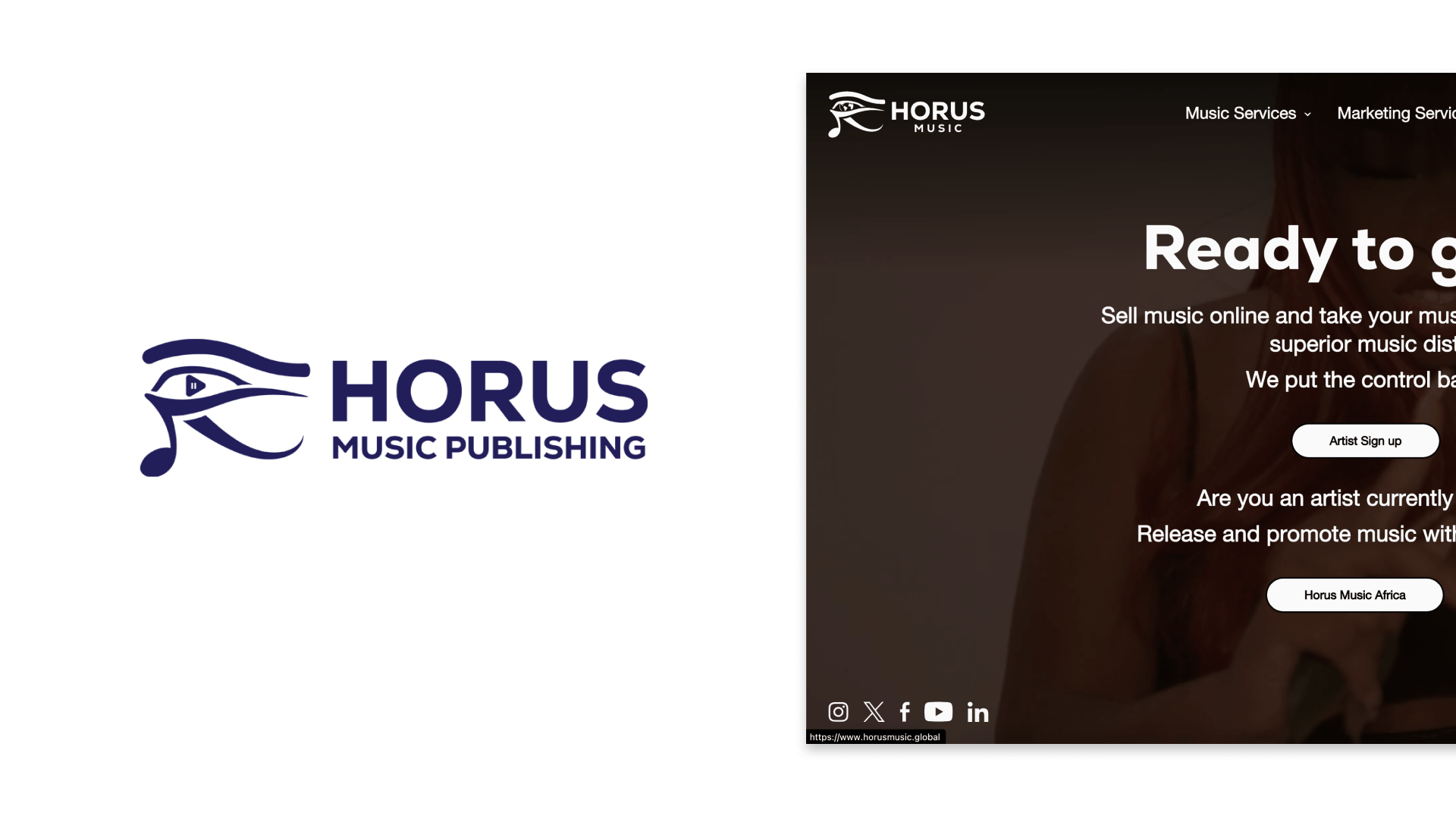
Horus Music Features
| Lowest tier price | £20/year (~27 USD/year) |
| Commission | None |
| Releases stay up if you cancel? | No |
| Unlimited releases to 150+ platforms? | Yes |
| Release speed | 5-7 days |
| Releases on social media? | No |
| YouTube Content ID | No |
| Video distribution | Starting at £20 per video |
| Reporting | Yes, limited analysis |
| Royalty splits | No |
| Mobile app | No |
| Cover licensing | No |
| Additional products & content | Playlist pitching, radio plugging, digital PR for additional costs. |
Pros:
- Offers a variety of promotion services in addition to distribution
Cons:
- Distribution product is limited compared to others
- Additional products and services come at a significant additional cost
Horus Music offers a range of publishing, licensing, and promotion services alongside its distribution.
These extras come at a premium, and it’s unclear how effective they have been for other artists.
If you’re seeking that level of support, Horus could be a viable option. However, in terms of distribution, you’re getting just the basics with a limited feature set.
10) TooLost
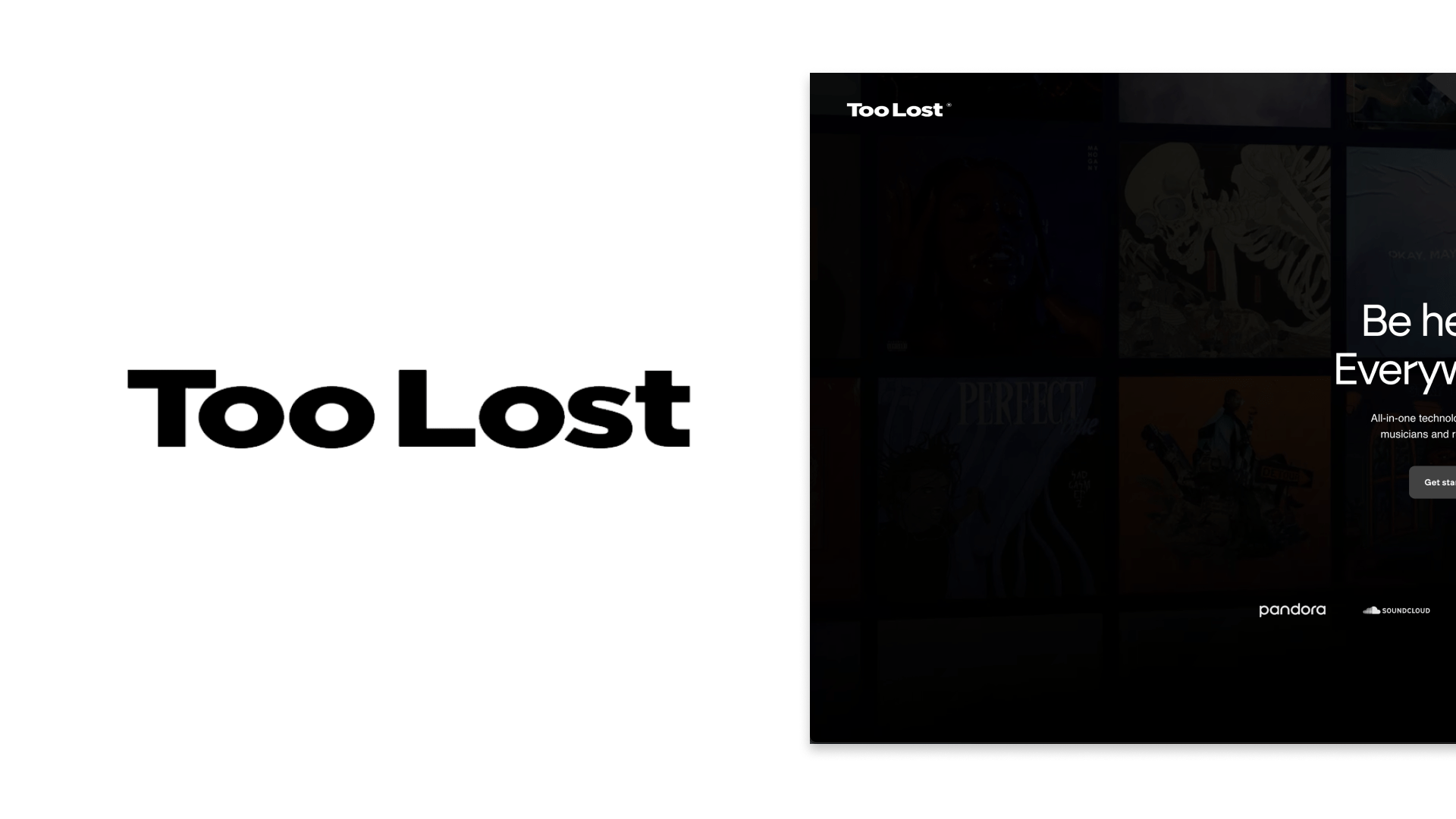
Too Lost Features
| Lowest tier price | $19.99/year |
| Commission | No |
| Releases stay up if you cancel? | Yes but Too Lost takes a 20% commission |
| Unlimited releases to 150+ platforms? | Yes |
| Release speed | 5-7 days |
| Releases on social media? | Yes |
| YouTube Content ID | Yes |
| Video distribution | No |
| Reporting | Yes, in-depth analysis |
| Royalty splits | Yes |
| Mobile app | No |
| Cover licensing | No, but you can distribute covers |
| Additional products & content | AI artwork generator |
Pros:
- Competitive price when compared to other distribution services
Cons:
- Standard features are there but overall their offering is fairly stripped down
- If you cancel, your music stays up, but at a 20% commission cost
Too Lost is a relatively new entrant in the music distribution industry, which is evident from its limited offering compared to other major players.
While they provide basic distribution services at a slightly lower price, they fall short on advanced features like mobile apps and additional content.
11) RouteNote
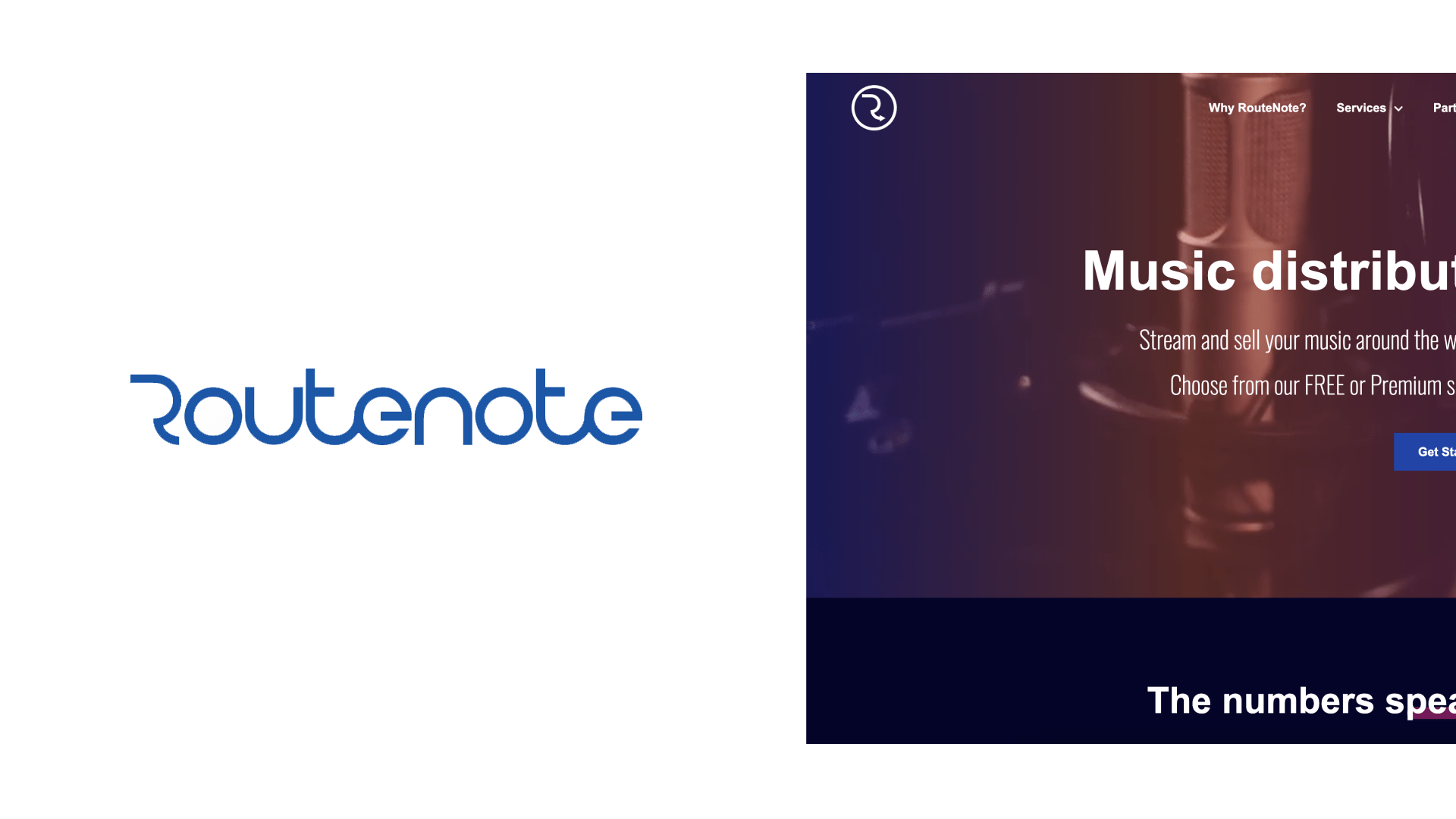
Route Note Features
| Lowest tier price | Free with commission or $30/per album |
| Commission | 15% commission for free plans |
| Releases stay up if you cancel? | Yes |
| Unlimited releases to 150+ platforms? | Yes |
| Release speed | 5-7 days |
| Releases on social media? | Yes |
| YouTube Content ID | Yes |
| Video distribution | Yes through its multi-channel network |
| Reporting | Yes, limited reports |
| Royalty splits | Yes |
| Mobile app | No |
| Cover licensing | No |
| Additional products & content | Invite only sync and publishing management |
Pros:
- Free plan available
- Option to pay per release
Cons:
- Sizable commission on free plans
- Limited features compared to the competition
Route Note, a UK-based music distribution service founded in 2007, offers a basic distribution service missing advanced features like detailed reporting and a mobile app. It also lacks additional content or tools such as educational content, branding tools, or music production software.
Route Note differentiates itself with its pricing system that’s similar to CD Baby’s pay-per-release model. However, if you’re on a budget and willing to give up 15% of your streaming revenue, you can use Route Note’s stripped-down free plan.
Hot tip
Every artist has different distribution needs
Is there a one-size-fits-all music distribution service? The answer is no.
Every artist has a different set of needs, budget and expectations from their music distribution service.
Ultimately, choose a music distribution service that offers quality, advanced features, useful tools, and bonus content that you’ll actually use.
Good luck with your next release!
Gear guides, tips, tutorials, inspiration and more—delivered weekly.
Keep up with the LANDR Blog.


